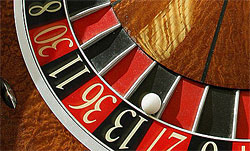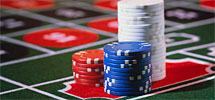Roulette Players and Their Superstitions

All the people in the world are inclined to believe in different kind of superstitions. And the casino gamblers are not the exception. They tend to believe in superstitions, which are related to the casino games, where they have little power to control the outcomes. And craps and roulette are such games.
Apart from the superstitions, the players know some roulette myths, which, as they think, can help them to increase or decrease their chances to win.
Popular Roulette Superstitions
There are two most popular roulette superstitions, which exist among the players - lucky numbers and trends.
Lucky Numbers
Most of the roulette players have their own lucky numbers. It is interesting to speak with gamblers who have their lucky numbers. They try to bet on lucky numbers all the time. And it is fun to observe such gamblers. Lucky numbers make the roulette game even more exciting, than it is. Perhaps, the creators of famous roulette betting systems had their own lucky numbers too. Who knows?
Trends
Trends are the most beloved superstitions among the roulette players. Gamblers believe that roulette trend is not accidental, like 6 blacks in a row or 6 numbers in the 1st dozen in a row.
But the reality is not the same, as the roulette gamblers sometimes want to believe in. They trust that the following result depends on the previous one. But the roulette wheel has no memory and doesn't remember the previous results. So, the antecedent winning number has no influence on the following result.
Yes, of course, some gamblers can find the biased wheels in certain casinos. In the case of playing on the biased wheel there is a possibility of dependence between the previous and the following results. Biased roulette wheel can be used while cheating at roulette. And one of the famous roulette bettors Joseph Jagger used the biased roulette while gambling in Monte Carlo. By the way, Jagger became a legend of Monte Carlo.
So, roulette superstitions exist and it's up to the players to decide: believe or not to believe.




